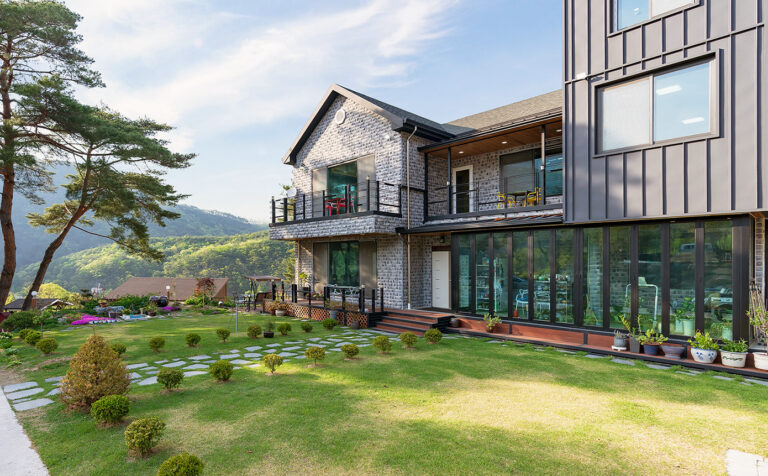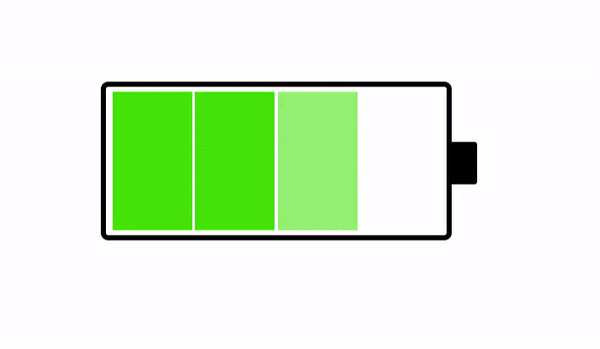According to Article 2 of the Enforcement Decree of the Public Health Control Act, facilities for rural minbak business, facilities installed in natural retreat forests, youth training facilities, facilities for urban minbak business, and facilities for hanok stay business are excluded from lodging businesses regulated by the Public Health Control Act and are instead regulated by their respective individual laws.
The rural minbak business could have been operated upon notification according to the Agricultural and Fishing Villages Improvement Act, but from November 2005, it required designation by the mayor or governor. This requirement was relieved back to a notification system in December 2009. The current Agricultural and Fishing Villages Improvement Act stipulates the following regarding rural minbak business:
According to Article 86-2 of the Agricultural and Fishing Villages Improvement Act, those who intend to operate a rural minbak business must meet all the following requirements and notify the mayor, governor, or district office head:
- Must be a resident of a rural or semi-rural area.
- Must have resided continuously for more than six months in the jurisdiction of the city, county, or district of the rural or semi-rural area (excluding those who inherited the house used for the rural minbak business).
- The house must be a single-family house, as defined in Article 2-2-1 of the Building Act, which the notifier resides in (including single-family houses and multi-family houses as per Annex 1 of the same act).
- The house must be directly owned by the notifier. However, the following are excluded:
- Those who have resided in the jurisdiction of the city, county, or district for more than three years, leased a house, and continuously operated a rural minbak for more than two years without having received a business closure order or business suspension for more than one month as per Article 89.
- Those who have resided continuously for more than three years in the jurisdiction of the city, county, or district and intend to continuously operate a rural minbak for more than two years through leasing.
According to Annex 3 of the Enforcement Regulation of the Agricultural and Fishing Villages Improvement Act, facilities for rural minbak business must meet the following criteria:
- Size
- The total floor area of the house must be less than 230 square meters (sum of guestroom and dwelling area). However, houses designated as cultural properties under Article 2-2 of the Cultural Heritage Preservation Act are exempt from this size limit.
- Basic Facilities
- Install fire extinguishers, standalone smoke detectors, and portable emergency lights as per Annex 1 of the Enforcement Decree of Act on Fire Prevention and Installation, Maintenance and Safety Management of Firefighting Equipment.
- For houses with a total floor area of 150 square meters or less, install evacuation signs as per Annex 1 of the same act. For those exceeding 150 square meters, install evacuation route indicators.
- In buildings exceeding 150 square meters with three or more floors, install descending life lines in each room from the third floor as per Annex 1 of the same Act.
- Breakfast Facilities
- Provide facilities such as refrigerators for storing food ingredients.
- When preparing food, ensure hygienic cooking and washing facilities.
- Install ventilation facilities in the kitchen, unless natural ventilation is possible through windows.
- Provide facilities to supply tap water (as per Article 3-5 of the Water Supply and Waterworks Installation Act) or groundwater that meets the water quality standards of drinking water under Article 5 of the Drinking Water Management Act.
- Safety Facilities for Heating and Fire Handling
- Install carbon monoxide detectors, gas leak detectors (if using gas boilers), fire extinguishers, and automatic fire extinguishers in heating and fire handling areas such as boiler rooms and kitchens.
- Install carbon monoxide detectors in each room, except where rooms and combustion devices are separated, eliminating the risk of carbon monoxide intrusion.
According to Article 86-2 of the Agricultural and Fishing Villages Improvement Act and Annex 3-2 of the Enforcement Regulation of the Agricultural and Fishing Villages Improvement Act, rural minbak business operators must comply with the following:
- Rural minbak business operators must display the confirmation certificate of notification and the rate card in a visible place in the minbak house as per Article 86-9.
- Rural minbak business operators must adhere to the following service and safety standards to enhance service and safety levels:
- Lodging Hygiene
- Regularly clean all facilities, including guestrooms, reception areas, corridors, stairs, bathrooms, shower facilities, washrooms, and toilets, and disinfect the entire facility at least once a month.
- Bedding and towels must be washed after each use by guests and dried in the sun or by machine as needed.
- Install ventilation facilities or windows and ensure regular ventilation.
- Food Hygiene
- Keep the kitchen clean to prevent food hygiene accidents and maintain personal hygiene while cooking.
- Clean and sterilize kitchen tools such as cutting boards, knives, and dishcloths after use.
- Store perishable and easily spoiled food in freezing and refrigeration facilities.
- Provide drinking water in each room according to the standards of the Drinking Water Management Act and manage it hygienically.
- Fire Safety
- Maintain fire extinguishers, evacuation route indicators (for total floor areas exceeding 150 square meters), or evacuation signs (for total floor areas of 150 square meters or less), standalone smoke detectors, carbon monoxide detectors, gas leak detectors (if using gas boilers), and portable emergency lights in working order.
- Regularly replace batteries for standalone smoke detectors, carbon monoxide detectors, and portable emergency lights to ensure they function properly.
- Ensure that fire extinguishers and portable emergency lights are easily identifiable.
- Heating and Fire Handling Safety
- Ensure proper ventilation in fire handling areas and keep flammable materials away.
- Regularly inspect, maintain, and ensure the proper functioning of heating facilities.
- Other Matters
- Do not engage in prohibited activities under Article 4 of the Act on Punishment of Arrangement of Commercial Sex Act.
- Do not engage in business activities that disturb public morals, such as allowing mixed-gender lodging for adolescents (as defined by the Juvenile Protection Act).
- Lodging Hygiene
- Rural minbak business operators must receive training on service, hygiene, fire safety, and other standards as prescribed by the Minister of Agriculture, Food and Rural Affairs or the Minister of Oceans and Fisheries, in accordance with the ordinances of the Ministry of Agriculture, Food and Rural Affairs or the Ministry of Oceans and Fisheries, through organizations with nationwide networks and approved by the respective ministers.
- Rural minbak business operators may provide breakfast to guests and include the cost in the minbak rates.
- Rural minbak business operators must undergo an annual safety inspection under Article 66 of the Electric Utility Act and Article 30 of the Safety Control and Business of Liquefied Petroleum Gas Act, keep the confirmation certificate, and submit a copy to the mayor, governor, or district office head.
- Rural minbak business operators must indicate that the establishment is a rural minbak in accordance with the ordinances of the Ministry of Agriculture, Food and Rural Affairs or the Ministry of Oceans and Fisheries on the entrance of the minbak house and the internet homepage (if any).


